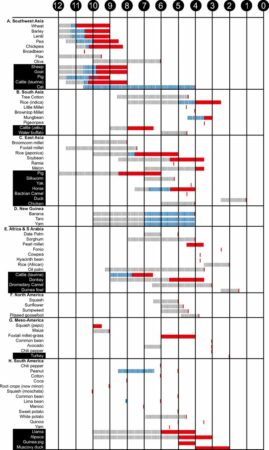The latest Eat This Newsletter is out. Here’s a taster. Do subscribe, well worth it. BTW, Jeremy has form on this topic.
The Plant Humanities Lab at Dumbarton Oaks apparently features the chilli pepper as its plant of the month this month, but as I cannot find a link there, I’m sending you to the version syndicated to JSTOR Daily. It’s a bit of a once-over-lightly, with little new for any reasonably well-informed chilli-head. While I’m carping, although the article says the seeds of wild chillies are spread by birds, it doesn’t mention any potential evolutionary advantage offered by capsaicin, the source of the heat. Clearly birds aren’t put off by it and humans can come to like it, but what is it actually for?
